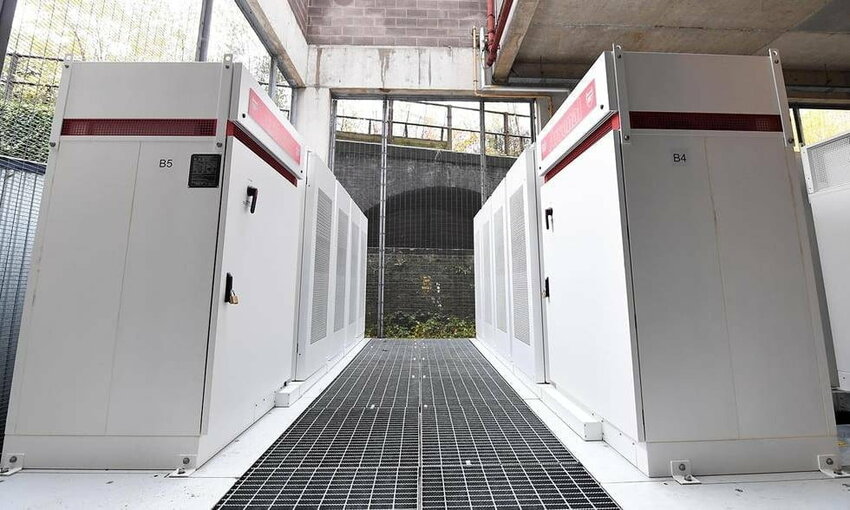 (Photo: The Pivot Power battery storage system for Arsenal’s Emirates Stadium. Credit: Arsenal Football Club)[/caption]
(Photo: The Pivot Power battery storage system for Arsenal’s Emirates Stadium. Credit: Arsenal Football Club)[/caption] Arsenal Football Club reports eliminating 10.7 million kilograms of carbon dioxide emissions since 2016, when the English soccer team formed a partnership with UK sustainable energy supplier Octopus Energy.
The savings occurred over the soccer club’s last 103 home games, according to SportsPro Media. Alice Larkworthy, Arsenal’s senior partner services manager, told the outlet that installing a battery storage system at Emirates Stadium in 2018 supported their broader effort to reach carbon neutrality.
Developed by UK-based Pivot Power and facilitated by Octopus Energy, the battery storage system was designed to meet the soccer team’s peak levels of energy consumption — and store enough power to run Emirates Stadium for an entire 90-minute match, Arsenal said at the time. The 180-square-meter device has a capacity of 3 MW/3.7 MWh.
Prior to the battery installation, Arsenal was already the first Premier League club to switch to 100% renewable electricity supplied by solar facilities and anaerobic digestion plants. Through their partnership with Octopus Energy, Arsenal recycles 80% of match day waste generated at Emirates Stadium, sending all the collected food waste to an anaerobic digestion plant. Since 2016, LEDs at the stadium reduced floodlight energy consumption by 30%, according to the club.
Last November BBC Sport worked with the United Nations-backed Sport Positive Summit to research the sustainability of all 20 Premier League clubs. They asked each club to provide evidence of initiatives across eight categories that included clean energy, energy efficiency, water efficiency, and waste management. Arsenal tied at number one with Manchester City, Manchester United, and Tottenham.
For their part, Arsenal’s environmental policy focuses on the key areas of energy consumption, waste management and disposal, water consumption, travel, and communication. The club committed to implementing, documenting, and maintaining an environmental management system (EMS) so they can review, monitor, and measure performance and effects across their procedures, operations, and policies.